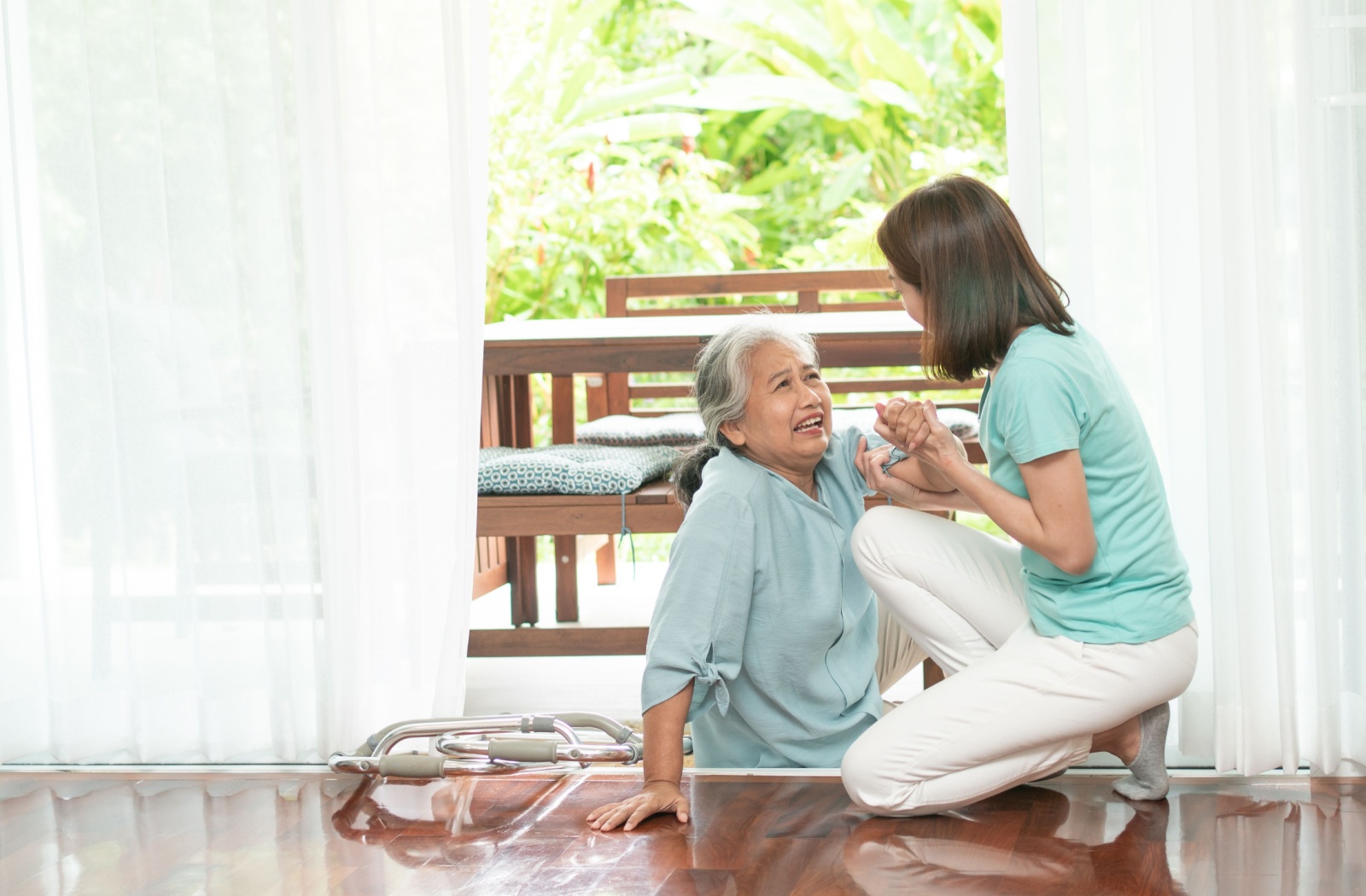Falls are a significant concern for seniors and their families. Understanding the common causes of falls in seniors is crucial for prevention. Falls can lead to serious injuries, impacting the quality of life of our beloved elders. By identifying these causes, we can create safer environments for them.

Why Do Seniors Fall?
Seniors may experience falls due to various factors. These could include physical, environmental, or health-related issues. Recognizing these factors is the first step towards prevention.
Physical Health and Falls
As people age, their bodies go through changes that can increase the risk of falling. Loss of muscle mass, poor balance, and reduced flexibility can all contribute to falls. Regular exercise can help improve strength and balance, reducing the risk of falls.
Medical Conditions
Seniors often deal with medical conditions that can increase fall risk. Conditions like arthritis, diabetes, and heart disease can affect mobility and balance. Medications for these conditions can also cause dizziness, leading to falls.
Environmental Hazards
Environmental factors play a significant role in falls. Poor lighting, slippery floors, and uneven surfaces can all lead to accidents. Ensuring a safe home environment is essential for preventing falls.
Home Safety Tips
Making a few changes at home can significantly reduce fall risks. Installing grab bars in the bathroom, using non-slip mats, and ensuring good lighting are just a few methods to enhance safety.
Outside Hazards
Uneven sidewalks, wet leaves, and icy paths are common outdoor hazards. Seniors should be cautious and use mobility aids if necessary to prevent outdoor falls.
Vision and Hearing
Declining vision and hearing can impact balance and awareness, increasing fall risks. Regular check-ups with eye and ear specialists can help manage these issues.
Vision Problems
Conditions like cataracts and glaucoma can lead to poor vision, affecting balance. Corrective lenses or surgery can help address these issues.
Hearing Loss
Hearing loss can affect balance and spatial orientation. Hearing aids and regular hearing tests can help manage these problems.
Footwear and Falls
Improper footwear is a common cause of falls. Shoes with slippery soles or poor support can increase the risk. Seniors should opt for well-fitted, non-slip shoes for safety.
Nutrition and Hydration
Proper nutrition and hydration are essential for maintaining strength and balance. Dehydration and poor nutrition can lead to weakness and dizziness, increasing fall risks. Seniors should maintain a healthy diet and stay hydrated.
Technological Aids
Technology can play a vital role in fall prevention. Devices like fall detection systems can alert caregivers in case of a fall, ensuring timely assistance. These systems can be life-saving for seniors living alone.
Benefits of Fall Detection
Fall detection helps in quick response, reducing the chances of serious injuries. It provides peace of mind for both seniors and their families.
Choosing the Right Device
When selecting a fall detection device, consider factors like ease of use, reliability, and comfort. Reading reviews and consulting healthcare providers can help make the right choice.
Support Systems
Support from family and community is crucial in fall prevention. Regular check-ins and assistance with daily activities can reduce the risk of falls. Encouraging social activities can also improve mental health and physical well-being.
Regular Health Check-Ups
Routine health check-ups can help identify potential fall risks. Regular consultations with healthcare providers can ensure timely interventions and recommendations for fall prevention.
Conclusion
Understanding the common causes of falls in seniors is vital for prevention. By addressing physical, environmental, and health-related factors, we can create safer environments for our seniors. Learn more about fall prevention strategies to protect your loved ones.

Frequently Asked Questions
What are the main causes of falls in seniors?
The main causes include physical health issues, environmental hazards, vision and hearing problems, and improper footwear.
How can I prevent falls at home?
Ensure good lighting, use non-slip mats, install grab bars, and remove clutter to prevent falls at home.
Do fall detection devices really work?
Yes, fall detection devices are effective in alerting caregivers in case of a fall, allowing for quick response and assistance.
This article contains affiliate links. We may earn a commission at no extra cost to you.

